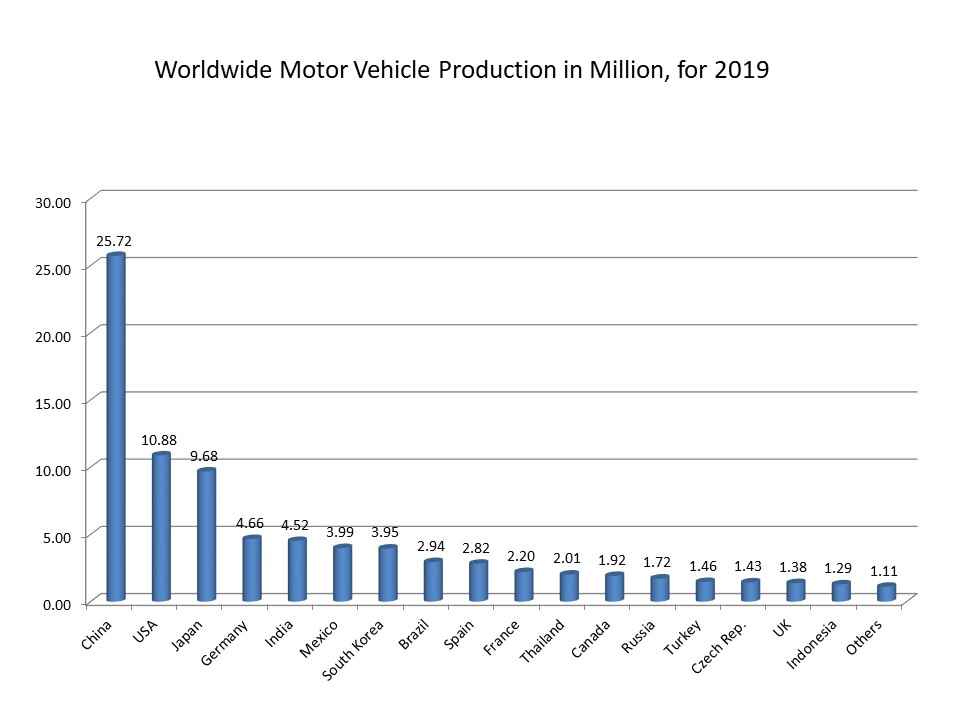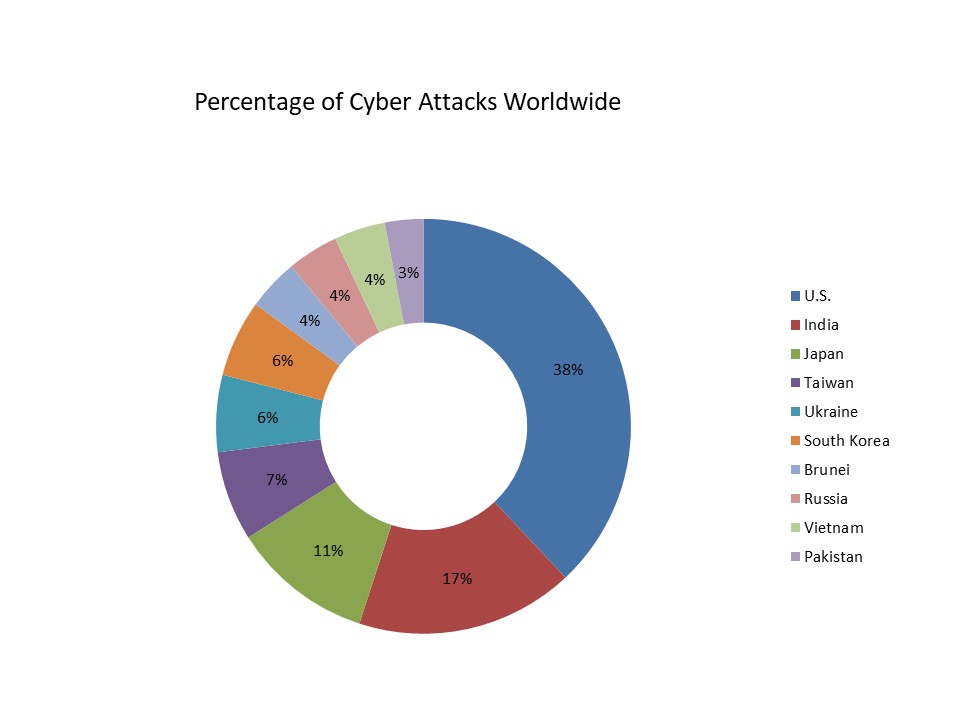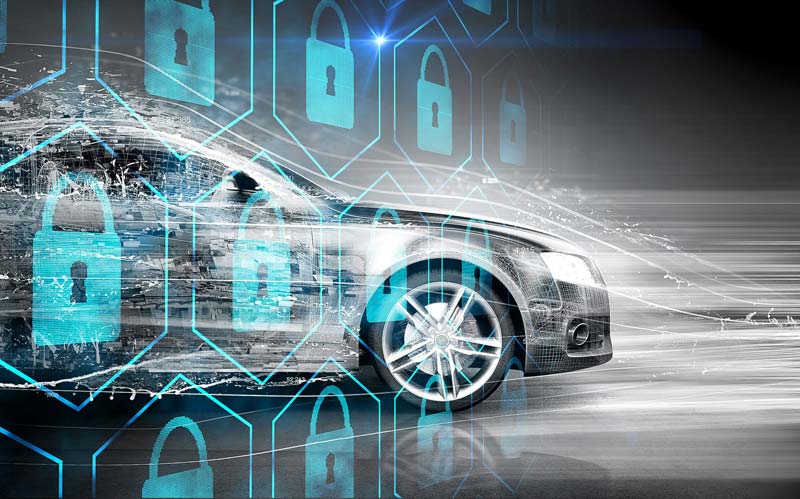COVID-19 Impact on Automotive Cyber Security Market in Semiconductors and Electronics Industry
Introduction
The pandemic started with its epicenter in China in 2019 and has been continuously spreading by then to all over the world; so far, 216 countries and territories have been affected with COVID-19, the U.S. being on the top with cases reaching about 13 million, followed by India, Brazil and then by many European countries such as Russia, Spain, Italy, and others. The COVID-19 cases are reaching the big named countries with a strong dominance in the global market, which has adversely affected the economy globally. The spread of the Coronavirus has led to the worldwide recession, many companies are being bound to take stringent actions of laying of their employees, small businesses are being shut, manufacturing facilities are being put on hold. There has been a disruption in many industries' supply chain due to restrictions in logistics and the closing of manufacturing facilities. Besides, the slowdown in the economy has lowered the spending capability of individuals, and people are saving money for emergencies.
The U.S. has witnessed a decline of 4.8% on an annualized basis in the first quarter Q1-2020. In addition, the slowdown in economy has also lowered the spending capability of individuals and people are saving money for emergencies.
The Latin America region is affected by COVID-19 in both human and economic terms. The IMF World Economic Outlook stated a decrease of 8.1% in GDP of Latin America in 2020.
Automobiles are now connected devices with Wi-Fi for remote start, built-in cellular communication and Bluetooth, and many other apps. The vehicles are now highly automated and connected through the use of advanced technologies such as IoT. Vehicles and the internet are now being integrated, and the increasing connectivity provides a solution to road safety, increasing traffic flow, and climate pollution. The use of these technologies will lead to a high generation of data required to be protected. The increasing cyber thefts and cyber-attacks have been shown to protect the data associated with automobiles too. The expanding growth in connected vehicles has increased the need for cybersecurity for these vehicles over the years.
About 125 million passenger cars with embedded connectivity are expected to be shipped globally in the period of 2018 to 2022, and the connected car market is expected to grow by 270% by 2022.
 Impact on Demand and Supply Chain and Long Term Strategy Adopted by Manufacturers or Steps Taken
Impact on Demand and Supply Chain and Long Term Strategy Adopted by Manufacturers or Steps Taken
The increasing number of cyber thefts has also placed connected vehicles at risk. Currently, only a few standards and guidelines exist for technical procedures for securing hardware and software in vehicles. However, the World Forum for Harmonization of Vehicle Regulations (WP.29) will be releasing new regulations on cybersecurity and over-the-air software updates.
For instance,
- In August 2017, the UK Centre for Connected and Autonomous Vehicles (CCAV) announced the launch of guidance that stated principles related to cybersecurity for connected and automated vehicles for providing awareness on the matter within the automotive sector.
The pandemic has boosted the digital transformation of industries; companies focus more on a digital platform to interact with their clients and customers. People working from home are also more reliant on digital sources. The automation and digitalization have been boosted during the pandemic. However, due to several logistics restrictions and the lockdown, the automotive sector has adversely affected the demand.
The increasing digitalization during the pandemic has also led to increasing cyber-attacks and malware attacks. Cybercrime increased by 600% due to COVID-19 pandemic. The increasing cybercrime because of a pandemic can increase the demand for automotive cybersecurity solutions.
 The COVID-19 impact has adversely affected the demand, which has caused ripple effects and has further led to disruption in the supply chain. The falling of demand made the companies to re-evaluate their inventories and production. Moreover, the closing of several manufacturing facilities and limited labor workforce brought down automotive vehicles' production.
The COVID-19 impact has adversely affected the demand, which has caused ripple effects and has further led to disruption in the supply chain. The falling of demand made the companies to re-evaluate their inventories and production. Moreover, the closing of several manufacturing facilities and limited labor workforce brought down automotive vehicles' production.
For instance,
In March 2020, the sales of cars dropped by 30% and the global sales of passenger cars is expected to drop down to 60.5 million units from that of 79.6 million units in 2017.
The fall in demand for vehicles has slowed down the connected vehicle and cybersecurity for the autonomous vehicle market. But to remain ahead in the competition, companies need to keep investing in further developments and continue funding CASE (Connected, Autonomous, Shared, and Electric). Moreover, an increased focus on cybersecurity as remote workplaces and collaborations has opened new threat vectors.
CONCLUSION
As the COVID-19 prevails, the initial period saw a disruption in both supply and demand of automotive cybersecurity. Most of the manufacturing facilities were closed, bringing down the production of automotive vehicle manufacturing companies. However, as the countries are getting digitally transformed, and vehicles are getting autonomous with high connectivity through IoT, cyber-attacks are also prevailing. The main concern for the market at present is the falling sales of an automotive vehicle. Moreover, the pandemic has caused a worldwide economic slowdown that has limited the people's spending capabilities. This has led to the low purchase of autonomous, connected vehicles due to high prices.
However, with more stringent government regulations to increase road safety, more autonomous vehicles are being developed with highly advanced technologies integrated. The cars are now fully connected with smartphones through the internet. The connectivity has increased the requirement for cybersecurity, and the market seems to be growing as more advancement will be made in connected vehicles and IoT.
“Post-COVID-19, we’re likely to continue on the path of beefing up endpoints with hardening security technologies and more fine-tuned security policies. It’s also expected that organizations will focus more on employee training and procedures and potentially train employees on how to assess the security of their local networks,”




 Impact on Demand and Supply Chain and Long Term Strategy Adopted by Manufacturers or Steps Taken
Impact on Demand and Supply Chain and Long Term Strategy Adopted by Manufacturers or Steps Taken The COVID-19 impact has adversely affected the demand, which has caused ripple effects and has further led to disruption in the supply chain. The falling of demand made the companies to re-evaluate their inventories and production. Moreover, the closing of several manufacturing facilities and limited labor workforce brought down automotive vehicles' production.
The COVID-19 impact has adversely affected the demand, which has caused ripple effects and has further led to disruption in the supply chain. The falling of demand made the companies to re-evaluate their inventories and production. Moreover, the closing of several manufacturing facilities and limited labor workforce brought down automotive vehicles' production.

